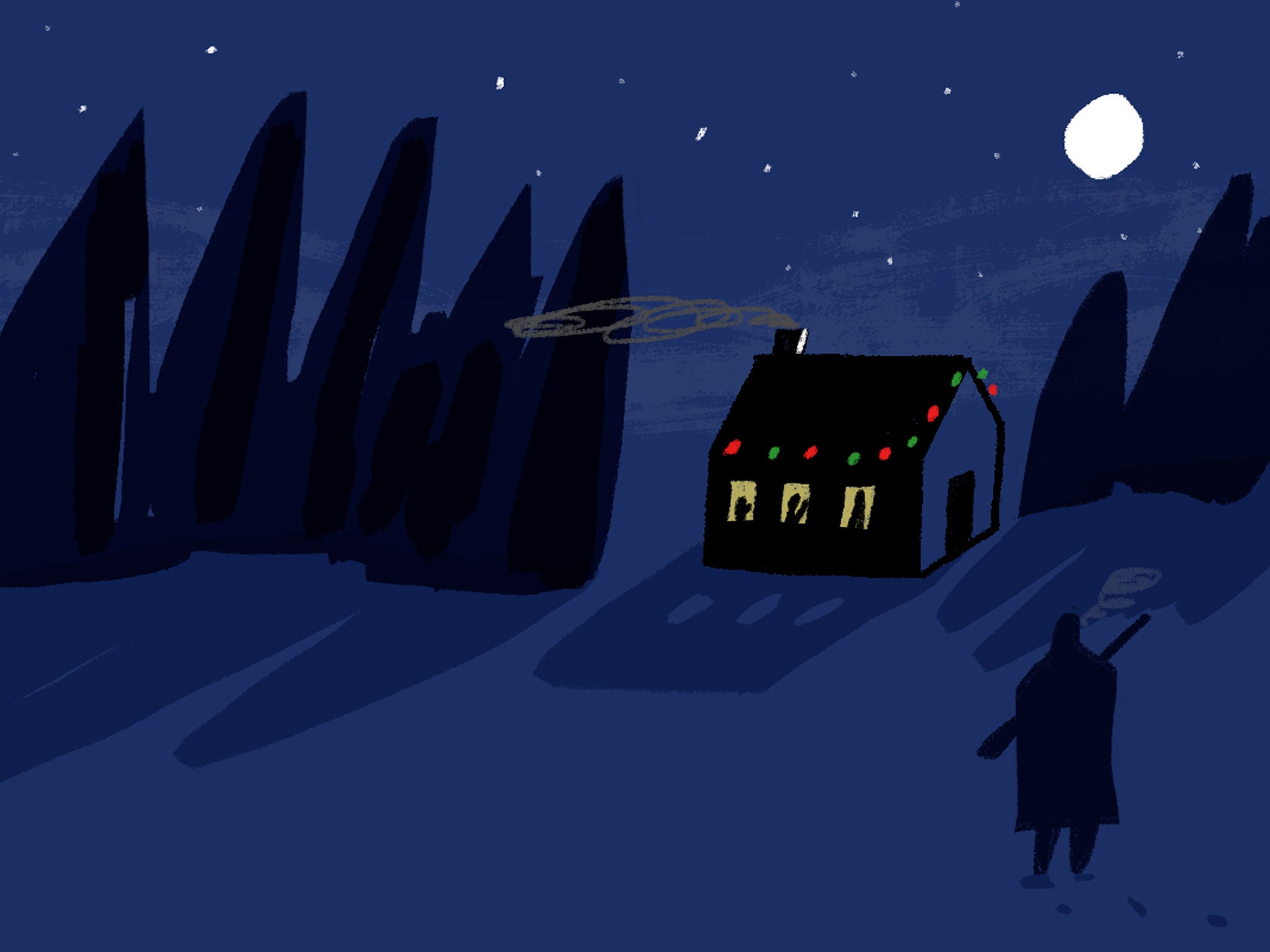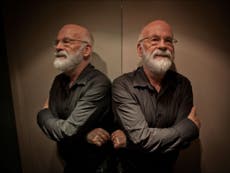Agatha Christie's And Then There Were None: Why is nice, genteel murder such a crucial part of Christmas?
Festive crime is a corrective against adverts full of telegenic families, says Natalie Haynes

Christmas wouldn't be Christmas without any murders, as Jo March might have said, if Little Women had taken an unexpectedly bleak turn. At least, that's how I feel, though the murderous intent doesn't extend to my family and friends, which must come as a relief to them. Well – to be more accurate – it doesn't extend their way from me.
Given my habit of luring my poor relatives outside for a festive walk, returning an hour later with everyone soaked to the skin because I am the anti-Cassandra of rain (falsely certain it will stay dry, and always being believed in spite of the weight of contradictory evidence), they may feel rather more homicidally inclined towards me. It's hard to be filled with tidings of goodwill when you are wearing someone else's clothes, while your own drip sadly in the hall.
But at least my clan won't be arguing about what to watch tonight, because there has only ever been one contender, since the moment the BBC announced they were adapting Agatha Christie's And Then There Were None, one of the great closed-cast murder mysteries, albeit one with a fraught history (it is currently on its third title, the previous two having suffered from the undeniable fact that – in the words of the old hymn – time makes ancient good uncouth. Personally, I have been waiting a lifetime for the publishers to crack once again and retitle it, And Then There Was None. A girl can dream).
But why is nice, genteel murder such a crucial part of Christmas? My festive viewing has included Hercule Poirot's Christmas (which usually makes the cut because it briefly implies the involvement of a disappearing, injured pig in the murder), and of course The Adventure of the Blue Carbuncle. It is no exaggeration to say that I am rarely happier than when hearing Jeremy Brett's Sherlock Holmes enunciating the phrase, "an unimpeachable Christmas goose".
Perhaps I'm drawn to festive crime as a corrective against endless advertising which shows extended families having telegenic Christmases in impossibly large houses. I couldn't fit more than my closest family in my flat unless I took out the furniture first, so I experience some mild schadenfreude at the notion that Christmas gatherings in holly-trimmed mansions are a hotbed of crime. I may not have enough chairs, but at least no one has used them to mimic the scene of a murderous fight, creating their watertight alibi. And, so far as I know, my brother has never fed a priceless gem to rogue poultry in the yard outside (not least because I am vegetarian, so he would have to conceal it inside an acorn squash. Also, I don't have a yard; I have a 30ft drop).
This delight in seeing blood on snow isn't unique to me, as the success of Joseph Jefferson Farjeon's Mystery in White proved last year , shifting an immense 60,000 copies and becoming Waterstones' bestselling Christmas paperback. The proliferation of similar titles this year – Golden Age murder mysteries repackaged for festive appeal – suggests it is a trend rather than a fluke. Georgette Heyer's Envious Casca has even received a new title, A Christmas Party, and cover art which typifies every- thing festive crime fans love: snow falling around a large house, its windows lit yellow against a fading sky.
Snow is infinitely more attractive in fiction than reality. Bing Crosby may have dreamt of a white Christmas, but that's probably because he didn't have to travel across the country to be with his loved ones. When the UK suffers bad weather just before Christmas (even though it's more likely to be fog or floods than pristine snow), it doesn't create a winter wonderland. It just means a lot of people crying on the news because they can't get home. And if the snow falls during Christmas, we're left with the equally unnerving prospect of not being able to get away from our relatives once the crackers are all pulled and the sherry finished.
I love my family as much as the next devoted daughter and sister, but I can't promise I wouldn't lapse into a life of crime if they were stuck with me for a week or more. I'd have to embark on a career of cat-burglary for a start, just to pay for the booze.
My only proviso for festive crime is that it must be painless and historical. I don't want serial killers marauding around major cities (it's no accident that The Bridge finished a week ago: Saga's murderers are far too terrifying for Christmas). I tend to be sentimental at the best of times, doubly so at Christmas. So I want the televisual equivalent of a crossword puzzle: an exercise of wits, in which a neat, ordered world is thrown into chaos before being set back to rights by an all-knowing detective. In other words, the murder mystery should be like Christmas itself: a short holiday from the routine.






Join our commenting forum
Join thought-provoking conversations, follow other Independent readers and see their replies